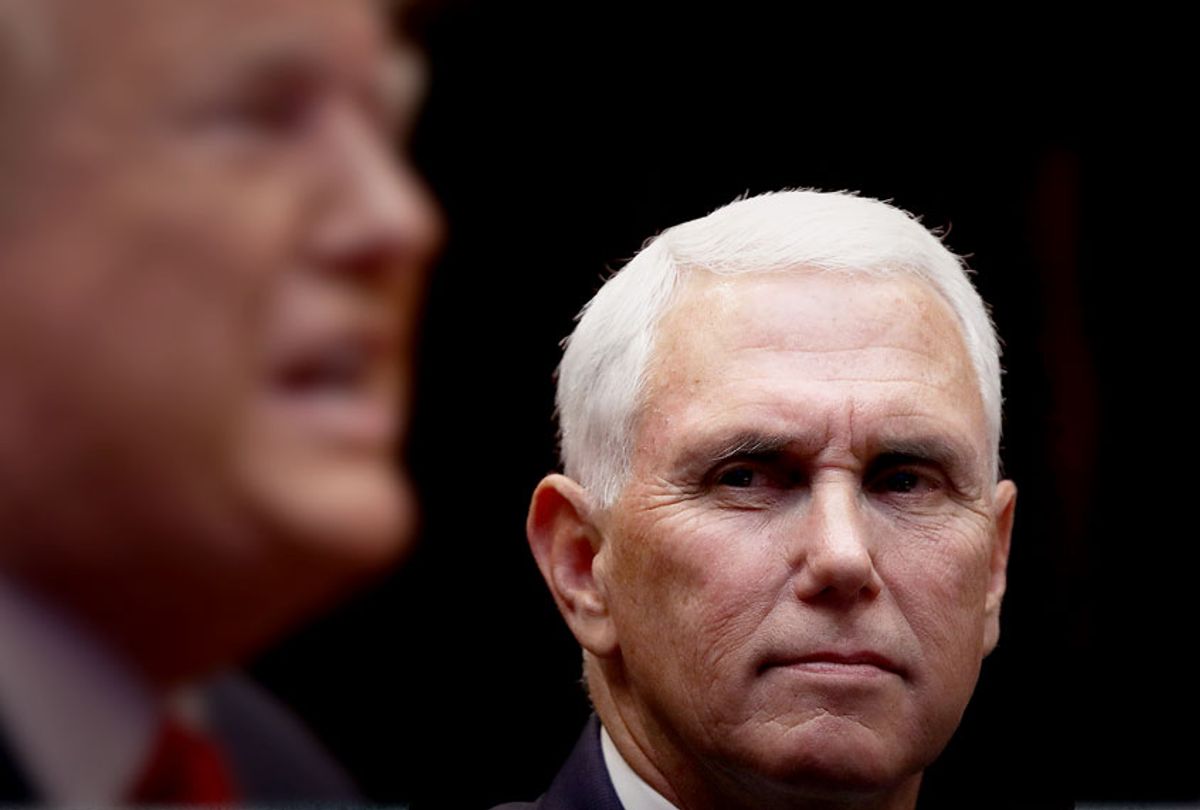I wasn't trying to make a prediction, but seven months ago I presented my students with a hypothetical that just might come to pass. Imagine this, I asked:
President Trump ends up in Walter Reed Medical Center, incapacitated by coronavirus. His cabinet invokes the 25th Amendment, thereby transferring all powers and duties of the presidency to the vice president. What should the new Acting President Mike Pence do?
I asked this back in March, shortly after my university closed and pushed all classes online. I adjusted to this reality while sick with COVID-like symptoms myself. Like most Americans last spring, I couldn't get tested — the few available tests went to the very ill or the very wealthy. It was hard to breathe, tough to stay awake and challenging to think clearly. I'm sorry President Trump is now suffering too.
My wife thought I was delirious from fever. While sick in bed, I deleted two months of lesson plans and announced my class would now spend the rest of the semester studying the pandemic. I recorded a video for my students encouraging them to be strong. This was an historic moment, I said, so let's try to learn from it.
I presented students with a "war game"-type scenario. Students would act as members of the National Security Council, responding to a request from Acting President Pence for a thorough reassessment of the country's pandemic response. Should he follow the path carved out by Trump, or should he change course? Can we learn anything by looking at how other countries are approaching the pandemic? What lessons lie abroad?
My students jumped on the challenge. They researched responses to the coronavirus around the globe, collectively reading hundreds of news reports.
They were shocked by what they found. With a few exceptions, much of the world was way ahead of the United States in addressing the disease. And this was in March, mind you.
By then, South Korea and Singapore had deployed advanced technologies for contact tracing. The Czech Republic required masks in public, with fines for non-compliance. Denmark kept people employed by subsidizing the wages of those who couldn't report to work. Germany had implemented strict social gathering rules. Liberia, Senegal and Uganda released pop songs to promote hand washing. China launched a national online learning platform so students could continue schooling at home.
President Trump was saying in March that no one could have foreseen the coronavirus, but my students identified one country after another that did. While he was playing it down, the rest of the world confronted it head on. Many were already flattening the curve.
As early as January, Taiwan began implementing 124 action items, including requisitioning PPEs and regulating the sale of masks. Australia was already conducting COVID-19 testing and Canada wasn't far behind. In February, Iceland was conducting random tests to track asymptomatic carriers. By early March — when sick Americans like me couldn't get tested — South Korea had already opened 600 testing clinics.
My students expressed frustration that the U.S. wasn't learning from these examples. "Unfortunately it feels as though the President's 'America First' ideology has also proven to be 'America Only' offering no room for learning from other nations," a freshman in my Global Studies class wrote.
This sounds like liberal-college-student stuff, except that I teach at a science and engineering university in Colorado, and my students lean conservative. They're also data-driven and believe that most problems have solutions. Their recommendations differed, but a clear pattern emerged.
If my students briefed a President Pence, they'd likely say the following:
First, change course. They recognized already in March, when fewer than 4,000 Americans had died from the coronavirus, that a new approach was needed to stop its spread. Learn from countries that are doing it right.
Second, adopt a consistent message that amplifies public health expertise. Some students pointed out that in places like New Zealand, where medical professionals and political leaders spoke with one voice, there was better compliance with safety protocols, and fewer COVID casualties. My students' advice to the president: Don't contradict or confuse, just tell people how to be safe.
Third, no more talking in either/or terms. We're not faced with a choice of either opening the economy or protecting public health. Managing this crisis requires balancing both. Help us figure out how to do so.
Fourth, develop a unified national strategy. Our state-by-state patchwork approach has too many vulnerabilities. We're only as strong as our weakest link. After all, one of my students pointed out, Floridians aren't just staying in Florida.
Finally, revive international cooperation. We can't stop the disease from crossing borders, so our own security is enhanced by working cooperatively with the international community. Utilize multilateral institutions like the UN and WHO to develop a coordinated response to deploy vaccines, resolve supply chain disruptions, and track and quarantine the sick.
Of course none of this is rocket science. But many months ago there was plenty of real-world evidence to back it up, and a bunch of students two years out of high school could see it. Had Trump followed this advice last spring, much suffering might have been avoided — including his own. The virus remains a threat, and there's still an urgent need to change course.
Now that we're at 210,000 dead and counting, some of my students are taking it personally. As one wrote me recently, while he himself was "studying the facts and working hard" to identify solutions for an imaginary president, the actual president "knowingly ignored the severity of the situation." Let's all hope that changes — either when President Trump returns from the hospital or when someone else takes his place.

Shares